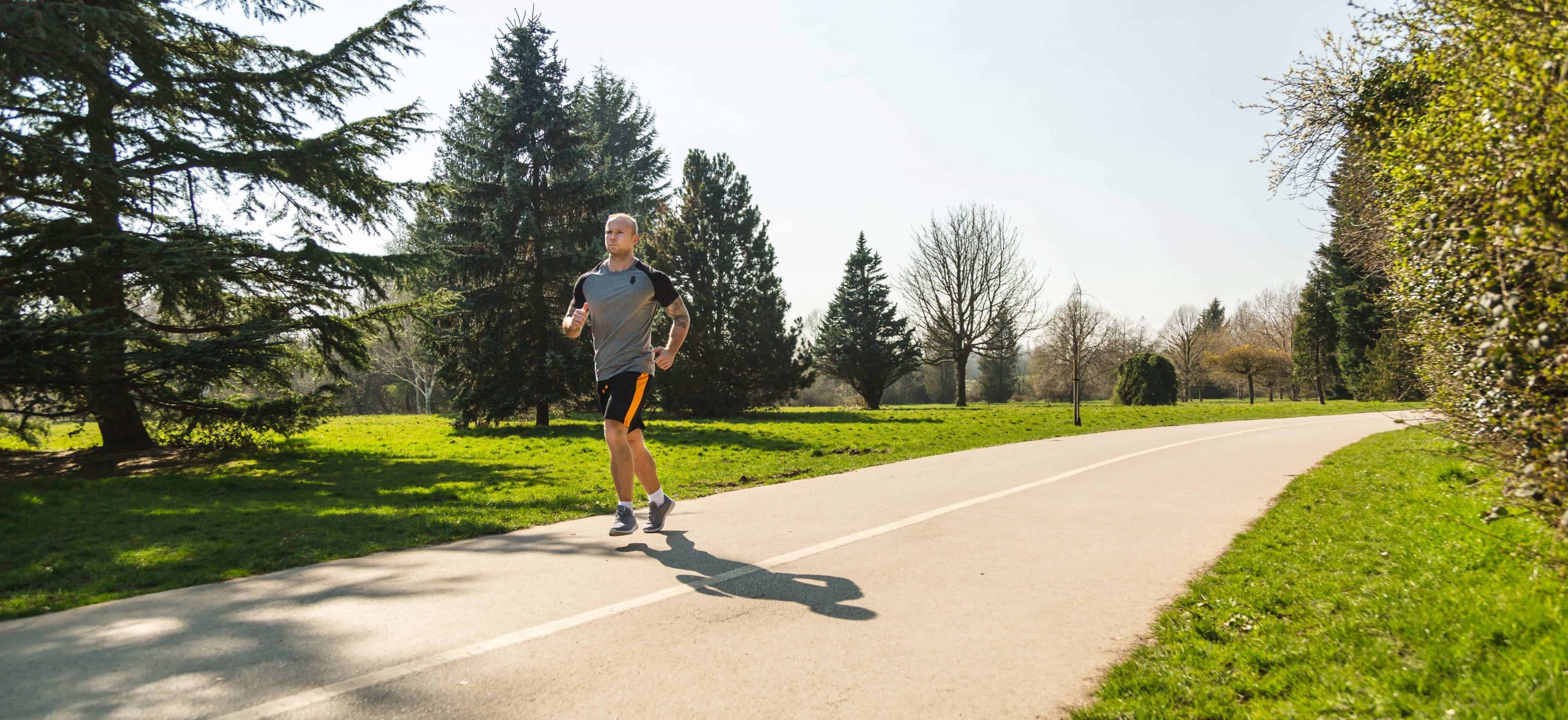Can You Run and Maintain Muscle Mass?

Cardio enthusiast or weight-lifting warrior?
Surely, you can’t be both? Or can you? That all too familiar divide between treadmills and dumbbells seems to have softened in recent years and many of us like to dabble in a bit of heart-raising cardio while dedicating some of our training time to pumping iron. Cos, life’s all about balance, right? But can you still increase your muscle mass while sticking to your post-lift run on the treadmill? We asked Team Grenade® athlete Vinny Russo to settle the score on this one – read on to find out what he thinks!
“When it comes to losing tissue, gaining tissue, and/or maintaining tissue, it all comes down to calories. In order to lose tissue, you must be in a caloric deficit (expending more calories than you take in), and in order to gain tissue, you must be in a caloric surplus (taking in more calories than you expend). When it comes to maintaining, your calories should be at what we like to call a “maintenance” level to where your body weight, body fat, and muscle mass stay stagnant. So how can cardio affect this?
Cardio, an aerobic exercise, is a great tool to use to burn calories. Due to this caloric expenditure, cardio is normally associated with the loss of body fat as well as muscle mass. But, can you run and still maintain your hard earned muscle? The simple answer is: yes, as long as your calories are matched and the proper type of cardio is utilized!
If you love running and it is a part or your lifestyle or you are using it to increase your cardiovascular health, then you need to make sure you are taking in enough calories to make up for the deficit created by that form of exercise. Too much cardio and not enough calories will lead to a loss of mass (both fat and muscle). Remember, when you lose muscle mass, your natural basal metabolic rate slows down, which means you will burn fewer calories per day.

So what type of cardio should you invest your time in? Cardio should be seen as a tool used to enhance overall fitness or to facilitate fat loss in the form of caloric expenditure. Running long distance and jogging will most likely chip away at the muscle if you go overboard and the overall caloric intake is not matched. Just visualize the body of a marathon runner and that should speak for itself.
Now, if the cardio involves running sprints, or was in the form of high intensity interval training (HIIT), where it consists of explosive movements or even some form of resistance, this may help maintain or even increase muscle mass depending on your training age. This form of cardio would be the cardio I recommend if you wanted to maintain muscle mass and NEEDED to do cardio.
In my opinion, the best way to maintain your muscle mass is through caloric mindfulness and incorporating some form of resistance training. Resistance training is a form of stress that causes the muscles to adapt by creating bigger and stronger muscles, thus leaving you with more muscle mass.

Here’s some science-y info for you: resistance training will also make your muscle more insulin sensitive (insulin is a storage hormone that will drive glucose into the muscles and live when glycogen stores are low). Weight training depletes your muscle glycogen and since the receptors become more sensitive, this means the glucose (carbohydrates) you put into your body will be shuttled into the muscle or liver instead of being stored as fat. With muscle cells being more insulin sensitive, there is less of an insulin output by the pancreas.
So with insulin levels on the lower side, as opposed to elevated, the body is more prone to burn fat as fuel and store glucose from carbohydrate foods as muscle glycogen. If not fueled properly (lacking calories), then the body will tap into the muscle cells to break down amino acids for fuel (this is called gluconeogenesis).”
This article by Vinny Russo was originally posted on grenade.com
About the Author Vinny Russo
I have a Bachelors in Science, I am PN.1 certified, NFPT certified, and in the process of obtaining my CN.L (Clinical Nutritional License) and my MSCN (Masters in Applied Clinical Nutrition). My mission is help you reach your health-related goals while educating throughout our journey together. The goal is to have you become a master of your own health by teaching you how nutrition works and what works best for your individual body.
Related Posts
The 6 Principles Of Getting Lean
8 Secrets Of Successful Contest Prep!
Shoulder Training: 4 New Shoulder Shapers
The 5 Best Training Tips You’ve Never Heard
Vincent Russo Fitness 360: Coach Against The Couch – Training
What Is Yohimbine HCl?
Session expired
Please log in again. The login page will open in a new tab. After logging in you can close it and return to this page.
